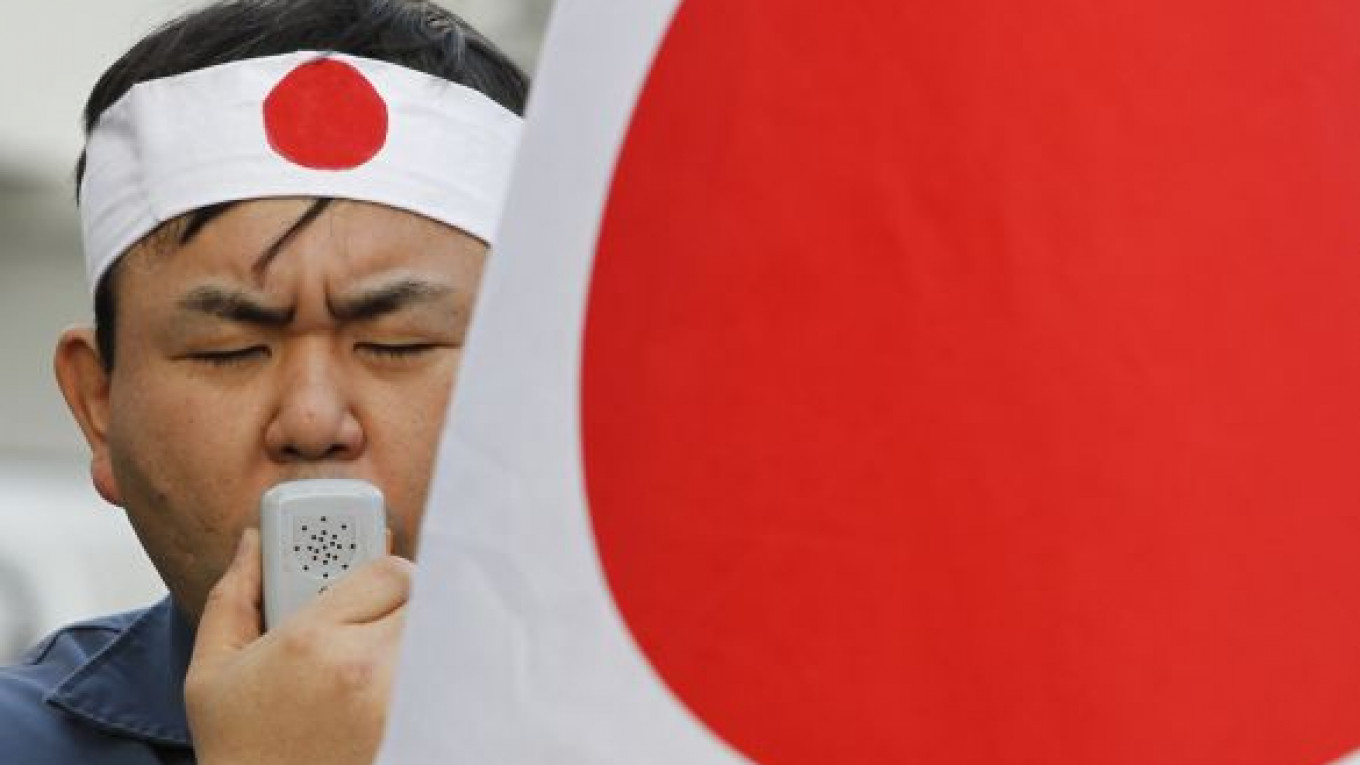TOKYO — Japan's foreign minister said Thursday that Russia has no legal right to occupy the disputed southern Kuril Islands that have kept the two countries at odds for decades, despite Moscow's increasingly assertive stance.
Foreign Minister Seiji Maehara said Japan stands by its claim to the southern islands in the Kuril chain that were occupied in the closing days of World War II by the Soviet army. The dispute has prevented the two nations from signing a peace treaty to formally end their World War II hostilities.
"Whether Russia sends its leaders there or boosts its defenses, it still has no claim under international law to occupy the islands," he said.
Russian President Dmitry Medvedev traveled to the islands last year — becoming the first Russian or Soviet leader ever to do so. He has stressed that he sees the islands as Russian territory.
Medvedev announced Wednesday that Russia will send more weapons to its islands in the North Pacific. He said his country must strengthen its presence there and that the new weapons will protect the islands as an "inalienable part of Russia."
Itar-Tass cited a Defense Ministry source as saying that some of the four Mistral assault ships that Russia has contracted to buy from France would be deployed in the Pacific Fleet, in part to defend the Kurils.
Japanese Chief Cabinet Secretary Yukio Edano responded Thursday by saying Japan is closely watching Russian military activity in the region.
"Russian military activity near our country is increasing and we will continue to monitor this closely with interest," Edano told a news conference.
"We would like to deal with this based on the stance that the four islands are Japan's territory and that we want to resolve the territorial issue and sign a peace treaty in accordance with existing agreements and statements."
Japan has strongly protested Medvedev's trip and other visits by top politicians to the islands. Japanese Prime Minister Naoto Kan recently called Medvedev's visit "an outrage."
Maehara is expected to express similar concern about the Kurils during a visit to Moscow that was to begin later Thursday and focus on economic development and the deepening territorial dispute.
Japan has said that the door to economic cooperation is not completely closed, but progress must also be made on the island dispute.
"There is room for expanding our cooperation in such fields as economy and energy," said Noriyuki Shikata, a spokesman for the prime minister. "In order to expand such cooperation, it is essential from our viewpoint that we will overcome the territorial issues."
Separately, Maehara told the Izvestia daily that Tokyo still saw a possibility to resolve the territorial dispute.
"We need to hold talks in a calm atmosphere [and] seek a version acceptable for both sides on the basis of legal facts and documents, worked out by agreement of both countries," he said in an interview published Thursday. "A solution is possible."
"Sometimes an emotional stance of the people of two countries arises around the territorial problem," he said. "But we can't solve this problem with emotions."
Medvedev's comments were in line with a recent strengthening in rhetoric over the disputed islands aimed at fuelling nationalism in Russia, said professor Shigeki Hakamada, an expert on Russia at Aoyama Gakuin University in Tokyo.
"Japan has been saying it wants to discuss both economic cooperation and signing a peace treaty," Hakamada said. However, Japan was frustrated about a lack of progress in talks on a peace treaty since Vladimir Putin, who is now Russian Prime Minister, became president in 2000, he added.
(AP, Reuters)
A Message from The Moscow Times:
Dear readers,
We are facing unprecedented challenges. Russia's Prosecutor General's Office has designated The Moscow Times as an "undesirable" organization, criminalizing our work and putting our staff at risk of prosecution. This follows our earlier unjust labeling as a "foreign agent."
These actions are direct attempts to silence independent journalism in Russia. The authorities claim our work "discredits the decisions of the Russian leadership." We see things differently: we strive to provide accurate, unbiased reporting on Russia.
We, the journalists of The Moscow Times, refuse to be silenced. But to continue our work, we need your help.
Your support, no matter how small, makes a world of difference. If you can, please support us monthly starting from just $2. It's quick to set up, and every contribution makes a significant impact.
By supporting The Moscow Times, you're defending open, independent journalism in the face of repression. Thank you for standing with us.
Remind me later.






